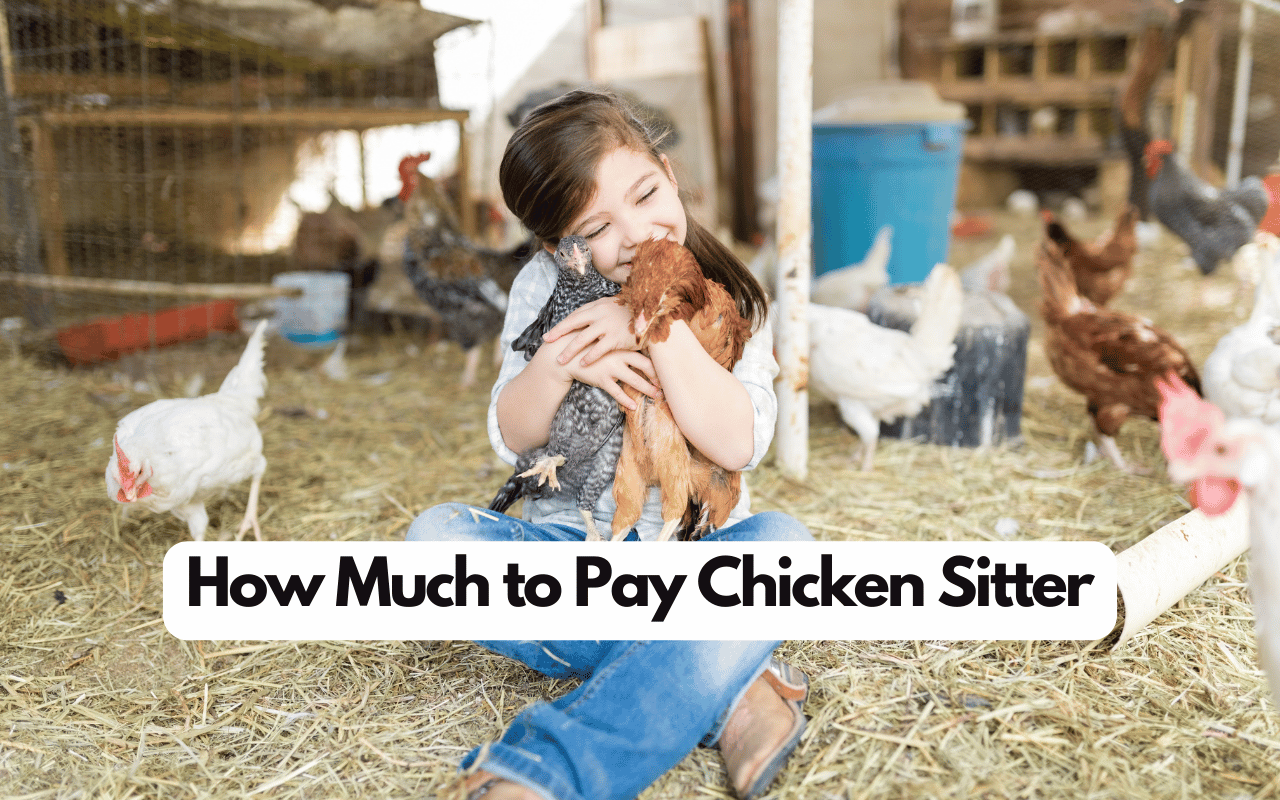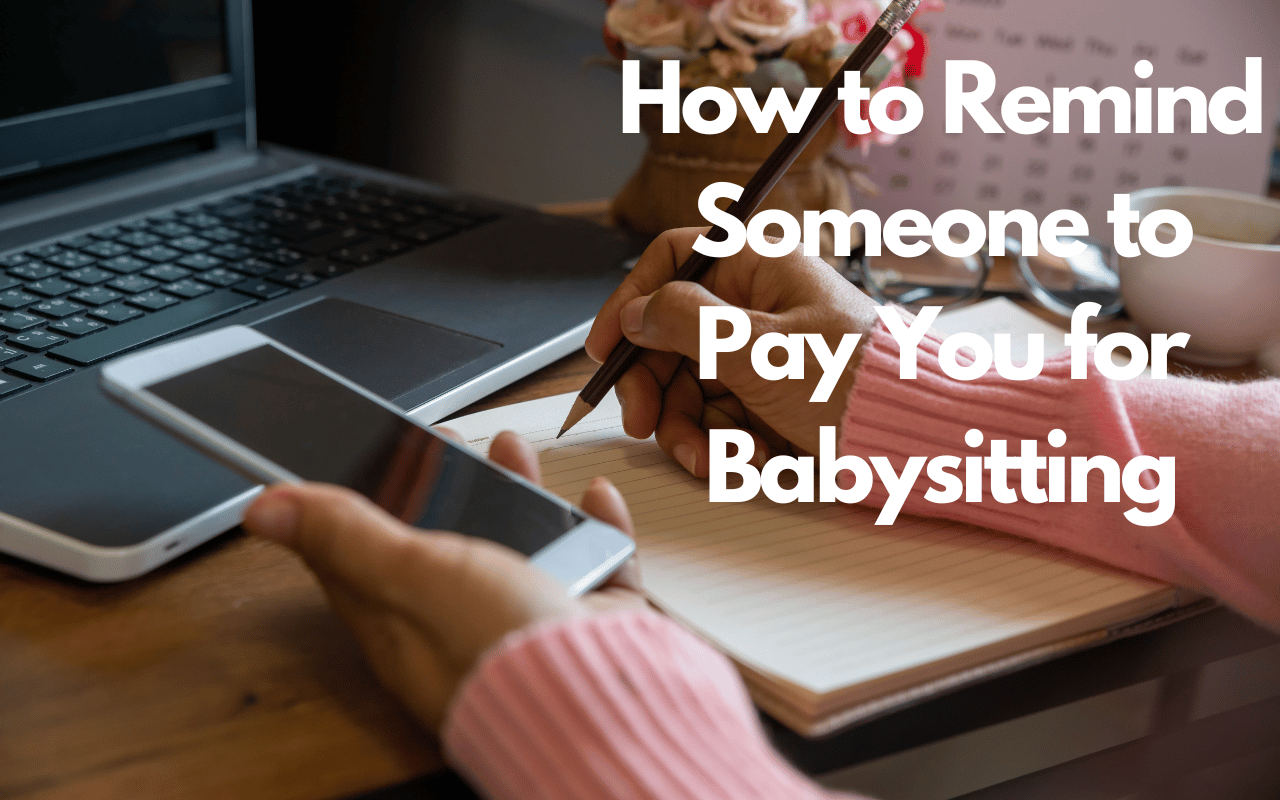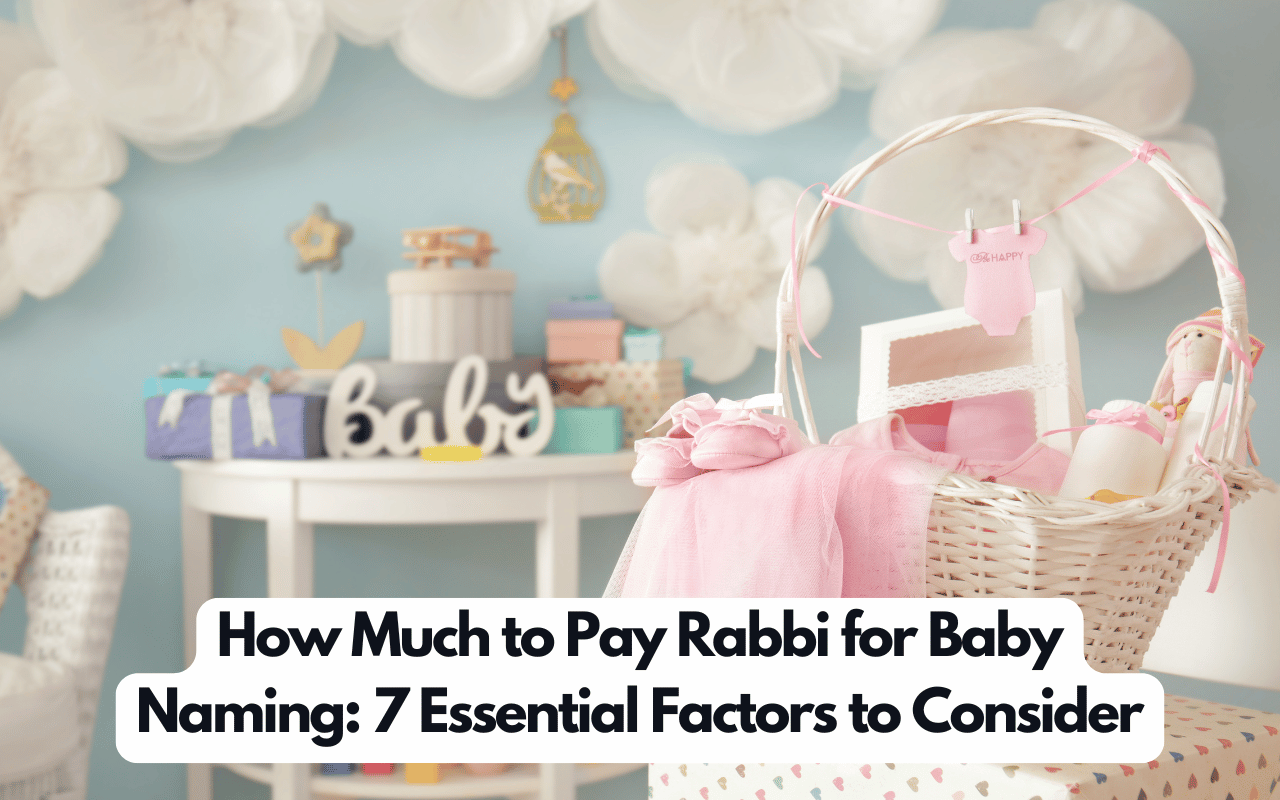How to Pay a Nanny: Ensuring Fair Compensation & Compliance

Congratulations on hiring a nanny! Unlike the informal arrangements with family members, a professional nanny deserves to be compensated properly for their expertise. This means addressing payroll elements such as taxes and benefits, ensuring a secure and legal employment relationship. Navigating these aspects ensures long-term protection and mutual advantages for both you and your employed caregiver, granting access to benefits like Medicare and Social Security.
- How to Pay a Nanny: Ensuring Fair Compensation & Compliance
- How to Pay a Nanny?
- How Much Do Most Nannies Charge?
- Do Nannies Cook and Clean?
- What's the difference between a nanny and a babysitter?
- Do nannies love the children?
- How do you write a nanny contract?
How to Pay a Nanny?
To appropriately pay your nanny and fulfill necessary paperwork, follow these guidelines:
1. Nanny Taxes and Payment: If your nanny receives more than $2,200 per year, or an average of $183 monthly, taxes must be paid. Compliance with tax regulations benefits both parties, providing tax breaks for you and crucial benefits for your nanny. It’s not just a legal obligation but also morally right, as nannies are considered employees, not independent contractors.
By paying nanny taxes, your caregiver qualifies for healthcare subsidies, unemployment benefits, verifiable employment history for loans, and Social Security and Medicare for retirement. This not only ensures legal adherence but also strengthens the safety net for vulnerable in-home care workers.
2. Paperwork and Taxes: Depending on your location, you may need to handle paperwork for both federal and state taxes. While services like Care.com’s HomePay simplify the process, if you’re opting for a do-it-yourself approach, follow these steps:
- Get an EIN and Complete Forms: Obtain a federal Employer Identification Number (EIN) online. Your nanny should fill out an I-9, a federal W-4 form, and a state withholding form if applicable.
- Salary Payment: Calculate your nanny’s gross pay by multiplying hours worked by their hourly rate, adding overtime if necessary. Deduct Social Security, Medicare, income taxes, and any other applicable taxes to determine the net pay.
- Nanny Taxes Payment: Submit the deducted taxes to the IRS and your state’s tax agency. Pay federal taxes every three months to avoid penalties. Check your state’s requirements and pay accordingly.
- Tax Filing Preparation: At the year-end, provide your nanny with a W-2 for income tax returns. File a W-2 Copy A and W-3 with the Social Security Administration. Complete additional forms if required by your state, and submit a Schedule H with your federal income tax return.
By adhering to these steps, you not only ensure compliance with legal obligations but also establish a fair and respectful employment relationship with your nanny. It’s a responsible and ethical approach that benefits both parties in the long run.
How Much Do Most Nannies Charge?
The 2023 Cost of Care survey has provided insightful data on the average expenditure for nanny services across the United States. For a single child, families are spending an average of $736 weekly, which breaks down to approximately $18.40 hourly.
For those looking to understand the typical earnings for a nanny within their own urban area, there are invaluable insights available. Drawing from a vast number of job listings, the following table presents the average hourly rates for nannies across a selection of key American cities:
| City, State | Average Hourly Rate |
|---|---|
| Atlanta, Georgia | $18.94 |
| Austin, Texas | $19.82 |
| Baltimore, Maryland | $17.76 |
| Boston, Massachusetts | $20.89 |
| Charlotte, North Carolina | $17.95 |
| Chicago, Illinois | $19.34 |
| Dallas, Texas | $18.32 |
| Denver, Colorado | $19.56 |
| Detroit, Michigan | $18.08 |
| Houston, Texas | $17.68 |
| Los Angeles, California | $23.26 |
| Miami, Florida | $20.01 |
| Minneapolis, Minnesota | $17.86 |
| Nashville, Tennessee | $18.81 |
| New York City, New York | $21.74 |
| Philadelphia, Pennsylvania | $18.97 |
| Phoenix, Arizona | $18.42 |
| Pittsburgh, Pennsylvania | $17.62 |
| Portland, Oregon | $19.48 |
| Sacramento, California | $20.16 |
| Salt Lake City, Utah | $17.49 |
| San Diego, California | $20.80 |
| San Francisco, California | $25.30 |
| Seattle, Washington | $23.15 |
| Kansas City, Missouri | $16.46 |
| Washington, DC | $20.80 |
These figures are a reflection of the base rate* and are instrumental for families in budgeting for childcare and for nannies to gauge their expected earnings. It’s evident that the cost of nanny care varies significantly from city to city, with San Francisco, California, at the higher end of the scale, and Kansas City, Missouri, at the more affordable end.
Do Nannies Cook and Clean?
The roles of a nanny and a housecleaner often get confused, despite their distinct differences. While it’s understandable for clients to see nannies occasionally engaging in cleaning tasks, it’s crucial to recognize the primary responsibilities of a nanny.
In essence, a nanny’s role is comparable to that of a teacher in a school. Teachers focus on educating children, just as nannies concentrate on fostering positive child development. Although nannies may assist with light cleaning and cooking, their main function is to interact with and care for children.
Unlike housekeepers, nannies are not primarily hired for extensive cleaning duties. A nanny’s value lies in dedicating time to children, positively influencing their development. The distinction between nanny and housekeeper roles is essential for a positive childcare experience.
While nannies do handle some cleaning tasks related to childcare, expecting them to perform extensive housekeeping duties is counterproductive. Scrubbing toilets, vacuuming, and other household chores fall outside the realm of childcare. A nanny’s main focus should be on the child’s well-being, not on general house maintenance.
It’s crucial to respect a nanny’s time and expertise by not burdening them with household chores unrelated to childcare. This ensures that the limited time spent with the child is maximized for meaningful interactions, learning, and happiness.
If unsure about whether to hire a nanny or a housekeeper, consider assessing your needs and budget. Alternatively, a balanced approach could involve hiring a housekeeper for specific tasks and a nanny for childcare duties. Acknowledging the unique roles of nannies and housekeepers fosters a more beneficial client-nanny relationship and contributes to a thriving childcare environment.
What’s the difference between a nanny and a babysitter?
Distinctions exist between a nanny and a babysitter. Both contribute to child supervision when parents are absent, but their roles and duration of service differ significantly.
A nanny serves as a consistent daily presence, offering not only childcare but also engaging in housework and actively participating in the children’s lives. This daily involvement distinguishes nannies as integral members of the household.
Conversely, babysitters are temporary caretakers engaged for short periods. Their responsibilities typically include watching over children for specific durations, such as when parents go on a date or attend appointments. Unlike nannies, babysitters provide brief, focused care during these times.
Do nannies love the children?
For many parents, nannies play a crucial role in their children’s lives, providing care and love when parents are away. Witnessing a strong bond between your child and their nanny can be challenging, sparking normal fears and concerns. However, it’s essential to recognize that your child’s attachment to the nanny is a positive development.
Concerns about your child favoring the nanny’s company are widespread, even among well-known figures like Princess Diana. Such worries don’t make you overly emotional or jealous but reflect the normal fears any loving parent might experience in a caregiver scenario. Despite these concerns, it’s crucial to understand that your child’s affection for the nanny is healthy and will not diminish their love for you.
According to Lindsay Heller, The Nanny Doctor and a prominent consultant in childcare, the fear that a child may perceive the nanny as their mother is unfounded. A child can maintain healthy attachments simultaneously with both parents and caregivers. The ability to form secure attachments, including with a nanny, is a positive sign of the child’s close connection to you, the primary caregiver.
Drawing on psychologist John Bowlby’s attachment theory, secure attachment empowers a child to explore, try new things, and develop various bonds. A nanny, as a trusted caregiver, contributes to the child’s emotional well-being and safety. In fact, a child’s attachment to their nanny is beneficial, ensuring they listen to the caregiver and follow guidance.
If your child runs to the nanny for comfort or seeks their presence in distressing moments, it indicates a strong bond. The caregiver’s departure may cause temporary upset, but acknowledging and validating your child’s feelings is crucial. Reflecting their emotions and reassuring them that the nanny will return fosters a healthy understanding of separation.
In these moments, your child turns to you for love and comfort, recognizing you as their ultimate source of security. The strong foundation of attachment you provide enables your child to explore the world, form additional secure relationships, and develop emotionally. Rather than feeling threatened, cherish the positive influence the nanny has on your child’s life, contributing to their overall well-being.
How do you write a nanny contract?
NANNY SERVICES AGREEMENT
This Nanny Services Agreement (“Agreement”) is entered into on [DATE] between:
Employer: [EMPLOYER’S NAME] Address: [ADDRESS], City: [CITY], State: [STATE]
AND
Nanny: [NANNY’S NAME] Address: [ADDRESS], City: [CITY], State: [STATE]
Hereinafter referred to as the “Parties.”
Term This Agreement shall commence on [DATE] and terminate as follows:
☐ On [DATE].
☐ Upon [#] days’ notice by either party, given verbally or in writing.
Children The Nanny agrees to provide care for the following child(ren):
- Name: [CHILD 1’S NAME], Date of Birth: [CHILD 1’S BIRTHDATE]
- Name: [CHILD 2’S NAME], Date of Birth: [CHILD 2’S BIRTHDATE]
- Name: [CHILD 3’S NAME], Date of Birth: [CHILD 3’S BIRTHDATE]
Hereinafter collectively referred to as the “Children.”
Responsibilities The Nanny’s responsibilities include general childcare and:
[List of Responsibilities]
Hereinafter collectively referred to as the “Services.”
Weekly Schedule The Nanny agrees to provide [#] hours per week according to the following schedule:
[Daily Schedule]
Location The Nanny is required to provide services at [ADDRESS], hereinafter referred to as the “Residence.”
Nanny Type The Nanny shall be:
☐ Working Remotely. The Nanny resides separately from the Employer.
☐ Living in the Residence. The Employer provides housing with ☐ bed ☐ bedroom without rent, utilities, or additional expenses.
Compensation The Nanny shall receive [AMOUNT] per hour for regular hours and [AMOUNT] per hour for overtime (over 40 hours/week). Compensation shall be paid:
☐ Weekly ☐ Bi-Weekly ☐ Monthly ☐ Other: [SPECIFY]
Payment shall be via:
☐ ACH (Direct Deposit) ☐ Check ☐ Cash ☐ Other: [SPECIFY]
Transportation If transportation is required, the Employer agrees to:
☐ Provide a Vehicle to the Nanny.
☐ Reimburse transportation costs for direct expenses or per IRS Mileage Rates.
☐ Not provide reimbursement for transportation.
☐ Other: [SPECIFY]
Other Benefits In addition to Compensation, the Employer agrees to provide:
[Check all that apply] ☐ Health Insurance: [DESCRIPTION] ☐ Public Transportation: [DESCRIPTION] ☐ Parking: [DESCRIPTION] ☐ College Tuition: [DESCRIPTION] ☐ Mobile Phone: [DESCRIPTION]
Time-Off The Nanny shall receive ☐ Paid ☐ Unpaid time-off:
☐ Sick Leave: [#] days per year. ☐ Vacation: [#] days per year. ☐ Other: [SPECIFY] [#] days per year.
Holidays The Nanny shall receive ☐ Paid ☐ Unpaid Holidays:
[List of Holidays]
Employment Relationship The relationship is:
☐ W2 Employee. Employer withholds required taxes, provides Form W-2, and follows employment tax obligations.
☐ 1099 Independent Contractor. Nanny is responsible for all taxes and contributions as an independent contractor.
Emergency Contact In case of emergency, contact:
- Name: [NAME], Telephone: [PHONE NUMBER]
- Name: [NAME], Telephone: [PHONE NUMBER]
- Name: [NAME], Telephone: [PHONE NUMBER]
Governing Law This Agreement is governed by the laws of the State of [STATE].
Confidentiality The Nanny shall not disclose any private information obtained about the Employer or others related to medical, financial, legal, or other sensitive matters.
Social Media No information about the Employer, dependents, or associates shall be shared on social media.
Grounds for Termination Grounds for immediate termination include:
- Compromising the safety of dependents
- Non-performance of job responsibilities
- Dishonesty, theft, or misuse of property
- Violation of Agreement clauses
Severability If any section is unenforceable, the Agreement remains in effect with remaining sections deemed legally binding.
Additional Terms and Conditions [List]
Entire Agreement This Agreement, along with attachments, supersedes any prior agreements, representing the entire understanding between the Parties.
Nanny’s Signature: ________________________ Date: _______________ Print Name: ________________________
Employer’s Signature: ________________________ Date: _______________ Print Name: ________________________






